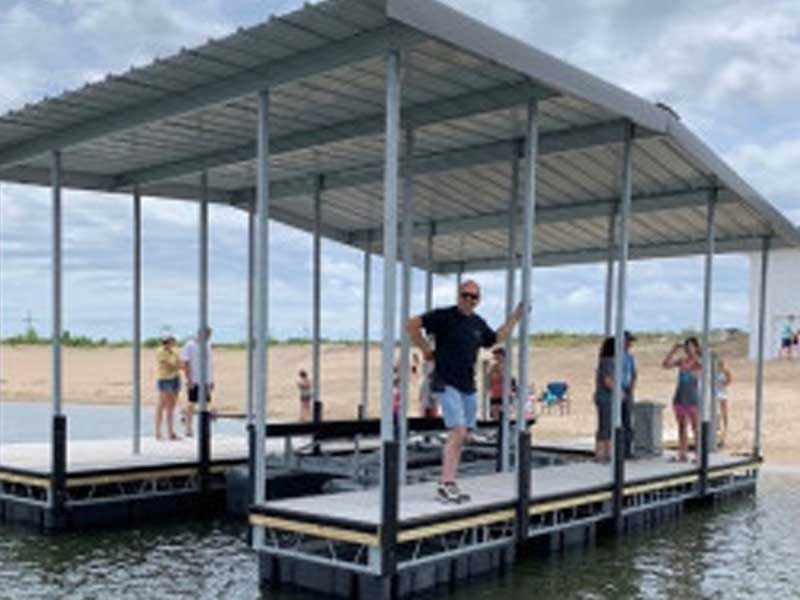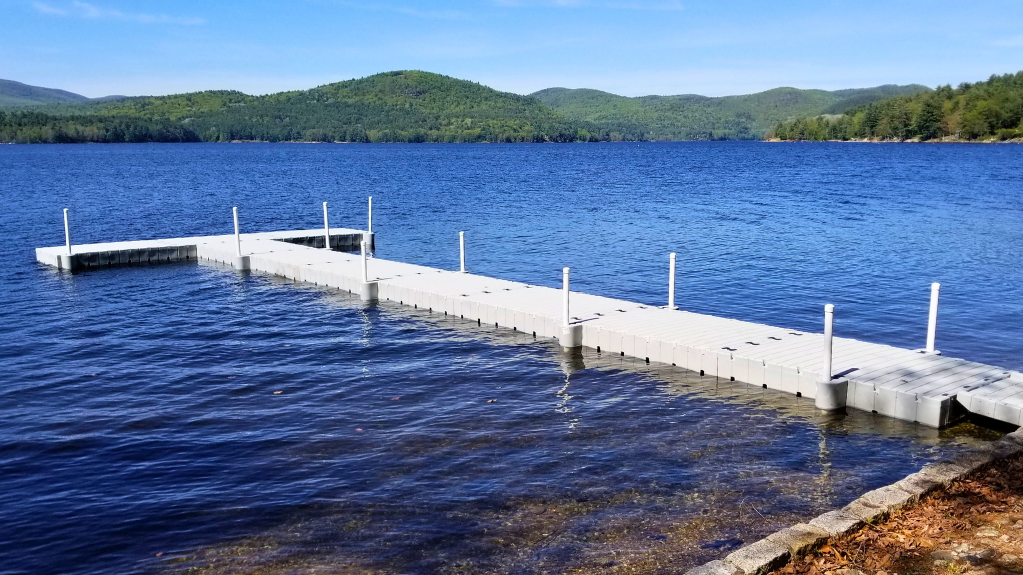Maximizing Your Outdoor Area with Specialized Floating Dock Providers
Wiki Article
Floating Docks: The Suitable Selection for Versatile Water Gain Access To
Floating docks existing an engaging option for a selection of water access needs, using adaptability that goes beyond standard mooring options. Their capability to adapt to fluctuating water degrees while making certain security and safety makes them particularly beneficial for both leisure and business applications. The modular nature of floating docks helps with customization, catering to particular demands. The nuances of installation and maintenance, alongside the variety of applications, warrant a closer examination to fully appreciate their possible benefits and effects for river accessibility approaches.Advantages of Floating Docks
Floating docks deal countless advantages that enhance water accessibility for different applications. Their ability to drop and climb with changing water degrees makes them particularly useful in environments with changing tides or seasonal variants. This flexibility ensures that vessels can quickly moor without problem for the water's deepness, giving a trustworthy system for entertainment, business, and commercial usages.Additionally, floating docks are usually created from long lasting materials that resist rust, making them appropriate for long-lasting use in marine atmospheres. Their setup is generally less invasive than standard set docks, decreasing the ecological impact and helping with quicker release (floating docks). This adaptability permits much easier moving or reconfiguration according to user needs or environmental modifications
Safety is an additional vital benefit; floating docks can supply steady accessibility for individuals boarding or getting off from boats and decrease the risk of accidents related to unpredictable surface areas. They can be designed to accommodate a selection of accessories, such as cleats and fenders, enhancing functionality. Overall, floating docks represent an effective remedy for boosting water accessibility throughout varied markets while advertising safety and security and ecological sustainability.

Kinds Of Floating Docks
Various sorts of floating docks cater to different requirements and settings, each developed with details attributes to enhance capability. One of the most usual types include modular docks, which include interlacing areas that enable easy modification and growth. These docks are suitable for entertainment usage, as they can be tailored to fit different watercraft dimensions and water conditions.An additional preferred choice is the stationary floating dock, which continues to be secured in location yet floats with altering water degrees. floating dock services. This type is particularly suited for areas with minimal tidal fluctuations, giving secure gain access to for fishing or swimming. Furthermore, there are drive-on docks, which feature a sloped design that permits boats to easily drive on and off, making them suitable for individual boat and smaller vessels
For business applications, durable floating docks are readily available, built from reinforced products to endure substantial loads and harsh marine environments. Finally, environmentally friendly floating docks use lasting products and designs to lessen ecological impact, usually including functions like vegetation to support local wildlife. Recognizing the various kinds of floating docks makes certain that users can choose the most appropriate remedy for their certain demands.
Setup Refine Review
A successful installment of floating docks requires cautious preparation and interest to detail to guarantee optimal performance and safety and security. The first step includes analyzing the website problems, consisting of water deepness, existing, and prospective obstacles. This assessment educates the choice of the appropriate dock products and layout customized to the certain environment.Following, obtaining required permits is crucial, as many territories have regulations regarding building and construction on water bodies. As soon as consents are secured, the installation can proceed. Begin by preparing the structure, which may involve anchoring systems or pilings customized to the dock type and regional problems.
Complying with the structure configuration, assemble the dock sections according to maker specifications. Make sure that all elements are safely fastened and straightened to stand up to ecological tensions. Setting the dock in the designated location, guaranteeing it is level and steady.

Maintenance Tips and Best Practices
After the setup procedure is total, recurring upkeep plays a crucial function in making sure the durability and performance of floating docks. Normal evaluations must be carried out to determine any type of signs of wear, degeneration, or damages - dock company. Examine for any type of loose installations, splits, or separation in the dock areas, as these can compromise architectural honestyCleaning the dock is vital to get rid of particles, algae, and various other build-up that can impact its appearance and safety. Utilize a mild stress wash regularly to keep cleanliness without triggering damage to the surface. Additionally, using a protective sealer every few years can aid improve durability and resist ecological wear.
Take note of the mooring lines and anchors, ensuring they are free and secure from corrosion. Change any kind of abject components quickly to avoid dangers. Seasonal adjustments may likewise be necessary; during extreme climate condition, strengthening the dock or rearranging can stop damages.
Applications for Floating Docks
Floating docks serve a plethora of applications, dealing with both commercial and recreational requirements. In recreational setups, they supply smooth accessibility to rivers for activities such as boating, fishing, and swimming. Their flexible nature enables installation in varying water levels, making sure steady and secure accessibility despite tidal fluctuations.Readily, floating docks are indispensable for marinas and beachfront companies. They facilitate the docking of vessels, allowing reliable unloading and loading of products. Their modular style allows for simple expansion or reconfiguration to suit changing company demands, making them excellent for watercraft rentals, trip operations, or fishing charters.
Furthermore, floating docks are used in ecological applications such as water research study and environment restoration. They can offer as platforms for clinical research studies, checking water high quality, or performing wild animals surveys without troubling delicate communities.
In industrial contexts, floating docks are used in building jobs, providing accessibility to hard-to-reach locations for equipment and workers. Their versatility, resilience, and marginal effect on the setting make them an optimum selection for a large range of applications, improving both functionality and availability in different water-based environments.
Verdict
Finally, floating docks represent an optimum service for varied water see gain access to needs, owing to their adaptability, resilience, and modular design. These structures help with risk-free mooring for various applications while lessening ecological effect during setup. The lowered upkeep requirements better improve their functionality. Therefore, floating docks work as a useful asset for entertainment, commercial, and environmental tasks, guaranteeing reliable accessibility to rivers and promoting sustainable techniques in marine settings.Floating docks present a compelling remedy for a selection of water accessibility requires, offering convenience that goes beyond typical mooring choices.Floating docks deal many advantages that improve water look here accessibility for different applications. Overall, floating docks represent an effective solution for enhancing water accessibility throughout diverse fields while promoting safety and environmental sustainability.
Another popular alternative is the stationary floating dock, which remains secured in place but drifts with changing water degrees.In final thought, floating docks represent an optimum service for diverse water accessibility needs, owing to their versatility, resilience, you could check here and modular style.
Report this wiki page